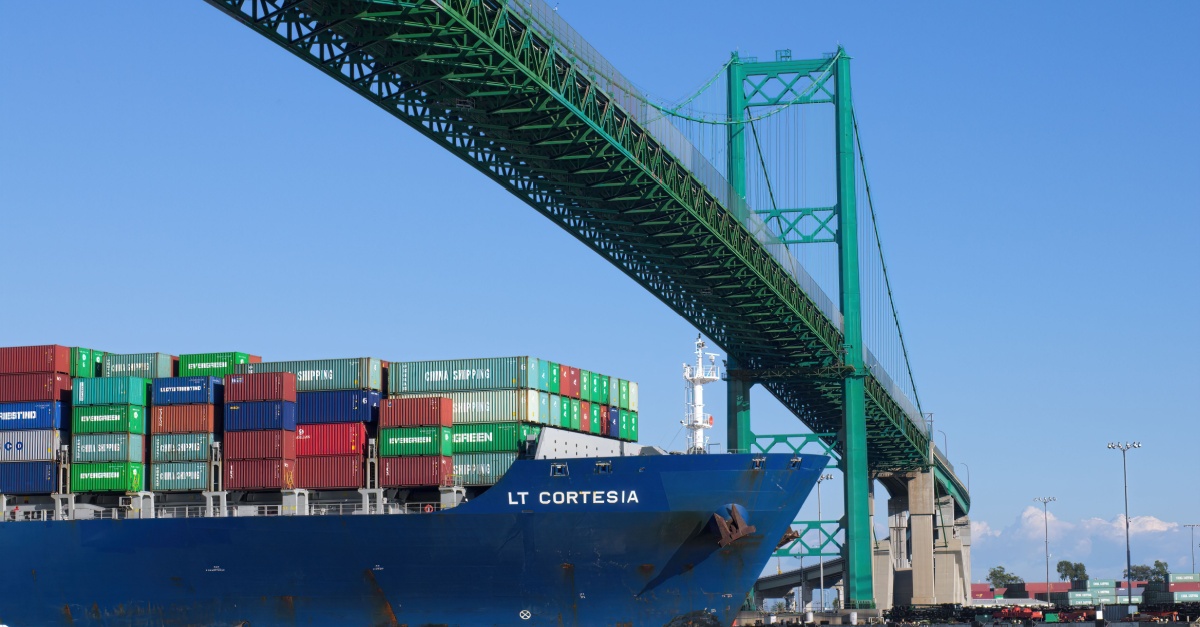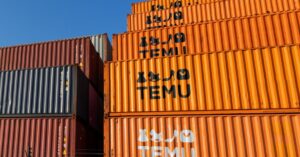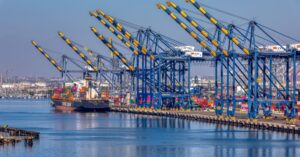The U.S.-China trade war and evolving tariff landscape are reshaping the logistics and retail sectors. Importers, carriers, and e-commerce platforms are deploying new strategies while confronting complex challenges. From rising ocean freight spot rates to port disruptions, trucking industry shifts, and anti-theft collaborations, stakeholders are working to adapt supply chains amid persistent volatility.
We have compiled the key developments shaping freight and retail economies as tariffs bite deeper and reposition industry players. Continue reading to learn all about it.
Spot Rates Hold for US, Slide for Europe
Average spot rates from Asia to the U.S. West Coast have remained stable at $2,790 per forty-foot equivalent unit (FEU) since mid-April. U.S. East Coast rates have also held at $3,830 per FEU after steep declines earlier in 2025, Xeneta reported. Rates to North Europe, however, dropped 8% to $2,130 per FEU, the lowest on record since December 2023.
Amid the tariff and trade war turmoil, blank sailings helped carriers stabilize U.S.-bound rates amid front-loading ahead of April tariffs. Xeneta’s Peter Sand warned that the stability may be brief as high prices could dampen U.S. demand. Meanwhile, European-bound rates continue to slide due to overcapacity and sluggish demand. As trade patterns shift, carriers face mounting challenges in sustaining rate levels.
West Coast Ports Warn of Tariff-Driven Job Losses
Port leaders and lawmakers from California, Oregon, and Washington are sounding the alarm over tariff-driven import declines, which also threaten port operations and regional economies. The Port of Los Angeles projected a 35% import drop within weeks, while Long Beach reported 34 canceled sailings and expected a 30% volume decline in May.
Bonded warehouses are at capacity as businesses delay customs clearance. Officials warned of rising job losses for longshore workers, truckers, and warehouse staff. Small businesses and agricultural exporters face severe impacts, with foreign buyers already seeking alternative suppliers. Lawmakers cautioned that the economic damage may rival pandemic-era disruptions.
Truckload Shippers Hedge Rates as Capacity Shrinks
Truckload shippers are negotiating shorter-term contracts and flexible rate agreements as they balance falling spot rates with potential capacity tightening. Average spot rates in April dropped 12.9% year over year, according to the Journal of Commerce, but rising equipment retirements and reduced driver availability are expected to constrain supply.
In the face of recent developments, shippers are seeking shorter contract terms, hybrid pricing models, and early renegotiations. While some carriers anticipate market firming later in 2025, capacity cuts and freight volume uncertainty keep pricing dynamics in flux. Shippers continue to prioritize agility amid a volatile rate environment.
Freight Tech Firms Unite to Combat Cargo Theft
Leading freight technology providers, which include project44, TriumphPay, and Highway, have partnered to launch the Freight Fraud Prevention and Recovery Network. The initiative aims to curb the growing trend of cargo theft and fraud, which has accelerated amid market softness and tariff-driven trade disruptions.
The alliance seeks to protect shippers, brokers, and carriers by sharing data and standardizing fraud detection processes. The network will leverage project44’s visibility platform, TriumphPay’s payment safeguards, and Highway’s carrier onboarding verification tools to create a unified defense against cargo crime and fraud schemes.
Temu Halts Direct Shipments as Tariffs Reshape E-commerce
Temu has stopped shipping products directly from China to U.S. consumers, instead relying on U.S. warehouses stocked through prior bulk imports. The move came in anticipation of the end of the de minimis tariff exemption on May 2 that adds significant cost and regulatory burdens to each shipment.
The strategy raises prices and limits availability, particularly for Temu’s hallmark low-cost products. The platform is also recruiting U.S.-based sellers to diversify its supply base. Analysts noted that while Temu’s shift avoids hefty tariffs, it reduces its competitive price edge and raises questions about long-term viability in the U.S. market.
Simplify Shipping With COGISTICS Transportation
Tariffs may or may not have a negative impact on your supply chains and shipping operations. However, they usher in uncertain times. With COGISTICS Transportation, complexity becomes clarity, and logistics becomes a competitive advantage. Leveraging more than 30 years of expertise, we provide innovative, technology-driven logistics solutions and expedited freight by land, air, and sea — around the clock, around the world. Connect with us today to ship with ease in these volatile times.




